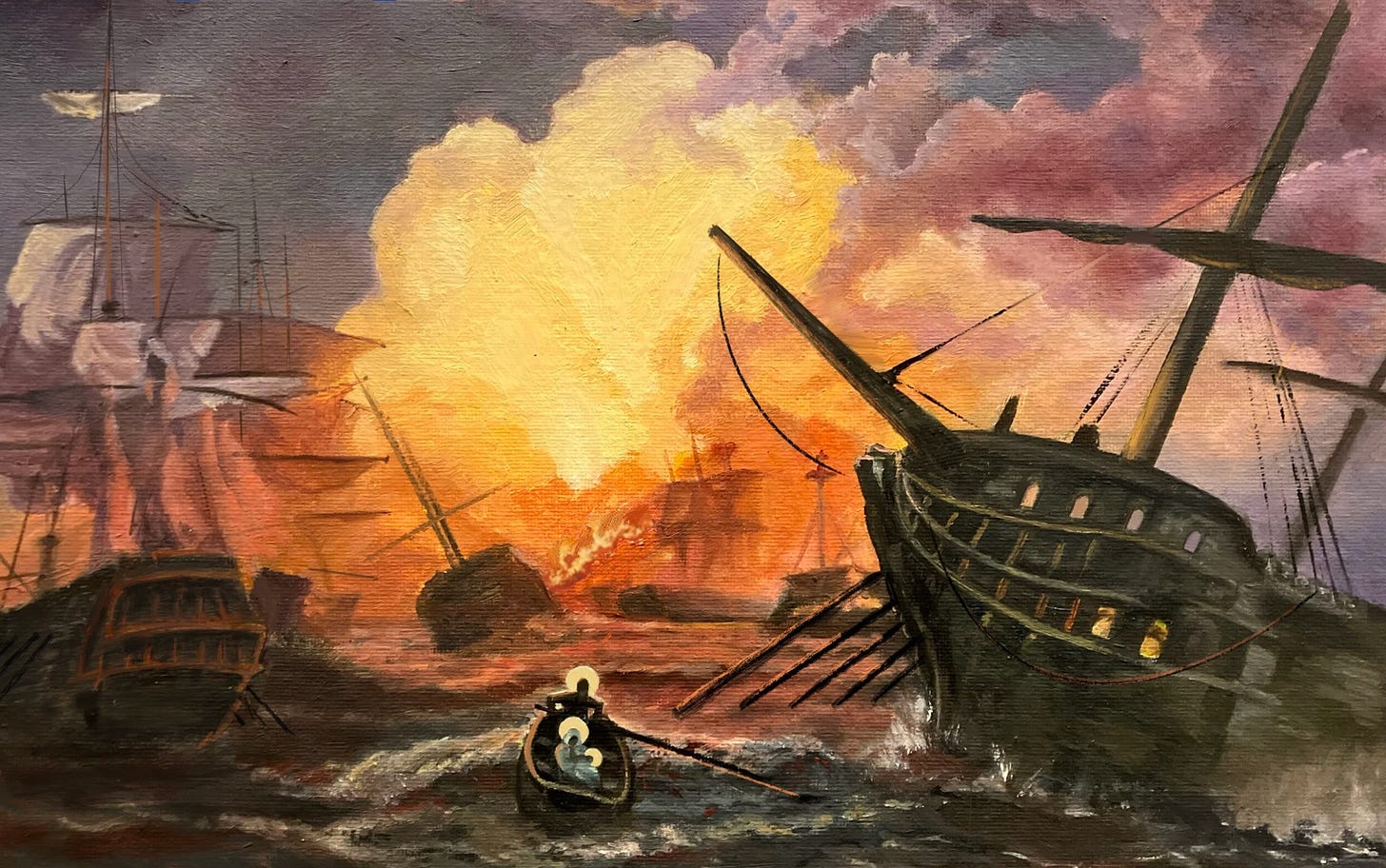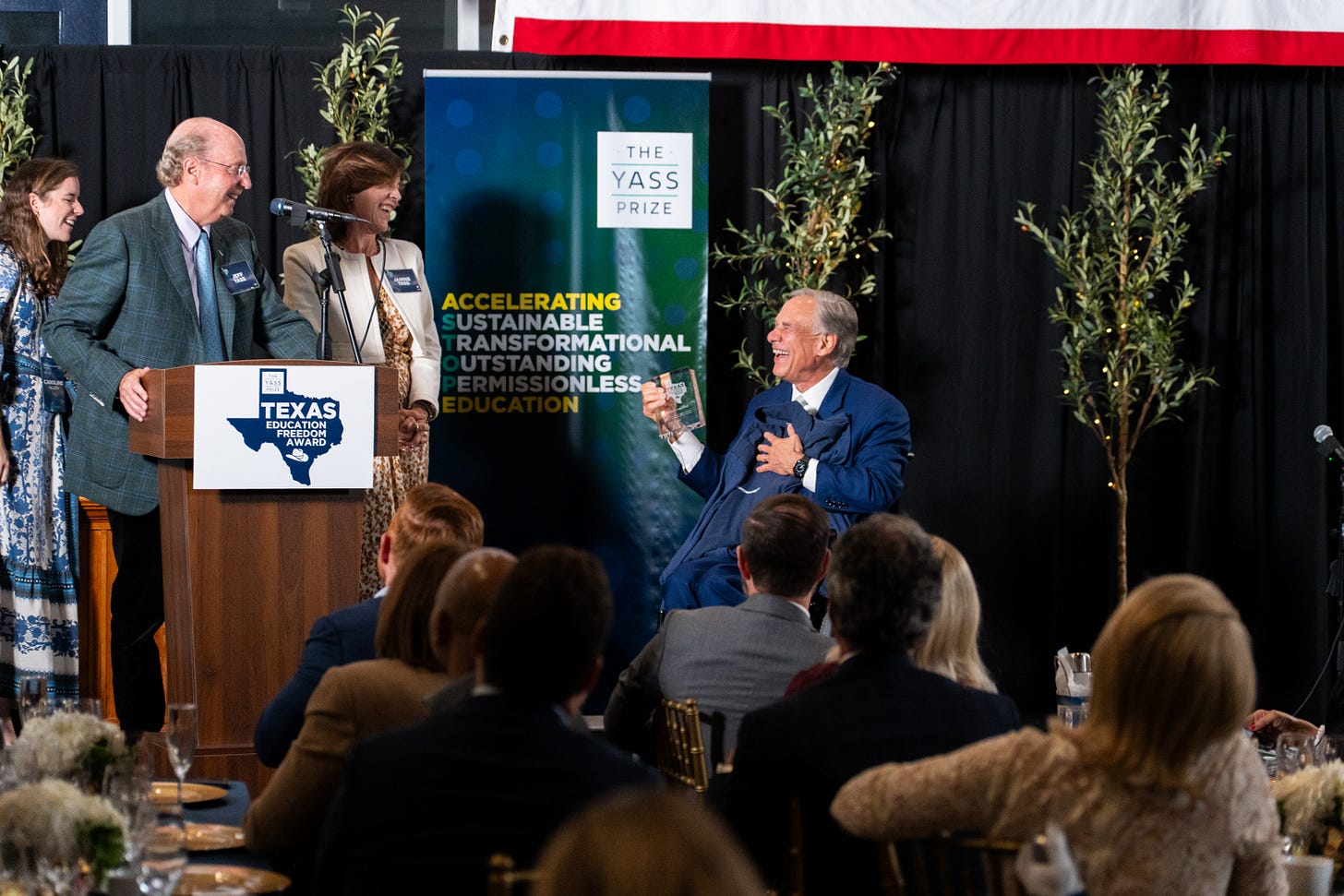Underdogs and Disrupters
From medieval battles to modern media—and the movement to transform education.
The underdogs and disrupters of history always have something to teach us.
Relatively few people know that this week in 1571, one of the most decisive naval battles in Western civilization took place: the Battle of Lepanto. More than 400 warships faced off in the Gulf of Patras as the Christian “Holy League” fought to defend Europe from the Ottoman Empire, which hadn’t lost a major battle in nearly a century.
Outnumbered and out-equipped, the sailors of the West prayed the Rosary the night before. Against all odds, they prevailed. That victory is why October 7 is celebrated as the Feast of the Holy Rosary—a reminder that courage, conviction, and faith can upend even the most entrenched powers.
From Galleys to Classrooms
Fast-forward more than four centuries. The late Clayton Christensen, the Harvard Business School giant, described this same phenomenon—without the swords and sails—as disruptive innovation. His Innovator’s Dilemma explained why incumbents rarely see the upstarts coming: they’re too focused on incremental improvements, while the disruptors reinvent the game entirely.
Education has its own Lepanto moments. In the 1990s, charter schools burst onto the scene as the insurgents of public education—publicly funded, independently operated, and focused on students rather than systems. Their very existence challenged the monopoly mindset of district schools, creating room for new ideas and new players.
Traditional systems optimized for predictability; charters optimized for possibility. And the ripple effect was unmistakable: higher expectations, new accountability models, and a proof point that innovation could thrive inside the public sphere.
Today’s Disrupters
Now, a new generation is rewriting the rules again.
Take Alpha Schools, the AI-driven micro-model featured recently on CBS News, where students advance through mastery-based learning at their own pace, guided by coaches instead of traditional teachers. Founder MacKenzie Price, who discovered through her own child what personalized learning really requires, has built one of the most powerful examples of what education freedom can look like in practice.
Or look to the Yass Prize community, whose innovators are launching hybrid academies, microschools, and programs that let families customize learning like never before. These are the modern underdogs—fighting not with galleys, but with grit, imagination, and the belief that every child deserves something better than the status quo.
The Free Press: A Disruptor’s Playbook
Disruption, of course, isn’t limited to education. Look at The Free Press, founded by the indomitable Bari Weiss. In just two years, it has become one of the most trusted—and controversial—media voices in America. Weiss took the best of traditional journalism—substance, storytelling, and standards—and paired it with the independence and transparency legacy media long ago abandoned.
From Honestly, her provocative podcast, to in-depth investigations that challenge orthodoxy across the spectrum, The Free Press has done what all great disrupters do: building something better, not just shouting at what’s broken.
And now, with its acquisition by CBS, The Free Press enters a fascinating new chapter in the cycle of disruption. It’s further proof of how innovations can upend the old order—and, if not careful, be absorbed by it. The challenge, as Clayton Christensen taught, is to keep transforming without becoming what you set out to replace. Education reformers often forget this lesson, mistaking institutional permanence for progress. The best innovators never do—they stay restless, principled, and ready to reinvent. We’ll be watching with admiration—and curiosity—to see how Weiss and her team navigate that balance, and what lessons all of us working to transform education can take from it.
From Classrooms to Campuses
The same spirit is reshaping higher education. Just last week, the Texas Education Freedom Awards convened at the University of Austin (UATX)—the higher-ed institution founded to restore truth and rigor to learning. “Dare to Think” screams the website in bold letters, as if a concept so foundational to civilization should be disruptive.
UATX is reimagining what a university can be: reading the classics, learning from original sources, and equipping students to think fearlessly rather than follow formulas. It’s higher education, rebooted—and proof that freedom and excellence can coexist.
The event brought together Governor Greg Abbott, state legislative leaders, Joe Lonsdale, Jeff Yass, and others who share a knack for creative disruption in their fields, to celebrate 11 education organizations expanding to meet the needs of students across Texas as the state’s new Education Freedom Accounts take shape. It was a vibrant display of what happens when policy meets purpose—and when innovators have permission to scale.
Next Up: Live from Forbes
And if you think you’ve seen disruptors, you ain’t seen nothing yet.
This Friday, October 10, at noon ET, live from Forbes, Chief Program Officer Caroline Allen and past Yass Prize winners will announce the latest contenders for the 2025 $1 million Yass Prize—live-streamed at YassPrize.org.
The Yass Prize continues to be the nation’s highest-profile celebration of permissionless innovation in education—fueling the underdogs who are transforming learning for students everywhere.
The Takeaway
Whether in battle, boardroom, or classroom, progress comes from the bold few willing to stand against the tide. From Lepanto to Alpha to UATX and the Yass Prize network, history favors the courageous—and the creative.
So here’s to the underdogs, the risk-takers, and the disrupters who remind us that faith and ingenuity still change the world.
Forza,
Jeanne




